1990 – 1999
Miracle of the Century
The first episodes of Superbook were ready… but getting them into the USSR for the children was going to be nothing short of a miracle! Teaching children about God in Soviet society was forbidden. It was a punishable offense.
Then came ‘the call’…
Unknown to them, the first episodes of the VHS videos that had been smuggled across the border for distribution to the underground church had ended up in the hands of a State TV documentary production crew.
A two-minute excerpt from the Superbook series had been aired on Leningrad TV as part of the State TV-produced documentary, prompting a call from the Soviet Central TV in Moscow.
Shockingly, instead of being threatened and arrested for the video distribution, they wanted to broadcast the Superbook Bible series nationally! This was an incredible surprise, one that only God could have orchestrated!
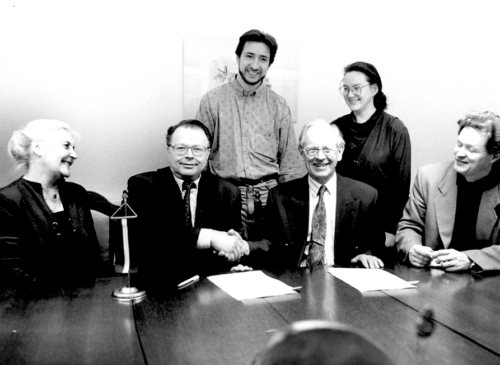
The state-run television network of Soviet Latvia agrees to air the Superbook animated Bible series on their biggest television channel. In photo: IRR-TV chairman Kai Antturi shakes hands with the CEO of Latvia State Television.
For 52 weeks, millions of homes across Russia watched ‘the Bible’ unfold in their living rooms for the first time. According to the Soviet State TV records, no program in its history had such astronomical ratings.
This triggered an unprecedented response as over one million letters flooded Moscow’s Post Office from all over the Soviet Union within the first 4 weeks and broke all records of the postal service.

A massive response. Containers of letters came in from across the country flooding the soviet postal system. The nation was on the move, seeking and searching for God which communism had robbed them of for decades.
It was a miracle of God in epic proportions. TIME magazine, The Wall Street Journal, and other media sources reported the story. Even now, many years later, we are still hearing of those who recall finding Jesus through the Superbook series in Ukraine, Russia, and Central Asia.
1991

The Soviet Union collapsed on Dec 26 bringing new freedoms for TV and media across the country as the Iron Curtain was no more. IRR/TV opens follow-up offices in Moscow, Leningrad, Kyiv, and Novosibirsk. Russian State TV signs a contract for weekly nationwide telecasts produced by IRR/TV.
Russia Sponsors Christian Programs
For two years Russian State TV Channel 2, subscribed to a weekly half-hour Christian program produced by IRR-TV, and the Russian government covered the cost of airing them! Response letters abounded once again, and the Moscow office was deluged with letters from viewers from over 7,000 Russian cities and villages.
Equipping Russia’s Churches
Churches were unprepared with unprecedented new freedoms using media for the Gospel, after rigid media control of the State. Training programs were launched in partnership with local churches and nationwide annual media conferences held in Moscow ‘cast visions of harvest’, critical for church growth.
Ministry milestones between 1991 and 2001, included the founding of The Association of Christian Broadcasters of Russia, and the establishment of Schools of Broadcast in Russia with Crossroads ministries of Canada. Students from Russia and the CIS States were trained for TV and radio ministry.
National TV channels in Russia were eager to take on Christian programming, ‘to serve to heal the souls of their people’.
1992
Soviet Central TV Channel televises a special Superbook closing program, called the “Superbook Party”. Hundreds of thousands of response letters from over 7,000 cities, towns, and villages in Russia are received.
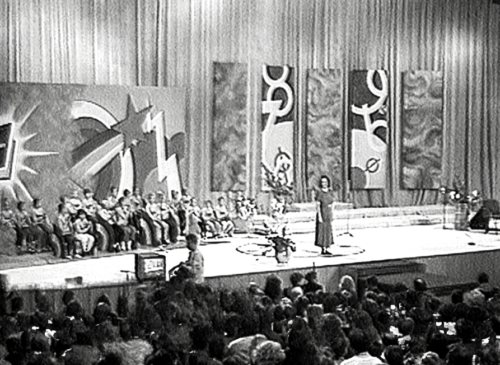
The central theme of the live telecast was the story of the prodigal son. Laura delivered the message with a passionate call to millions of her countrymen to “come back home” to God whom they denied for 70 years.
The prodigal son comes home
Soviet TV decided to bring ‘a happy ending’ to the programs that the nation had watched so intently, with Laura sharing the closing message. The central theme of the live telecast was the story of the prodigal son.
On live TV, Laura appealed to the people of her home country: “Like the prodigal son, Russia has wandered aimlessly in the wilderness of atheism for 70 years,” she said. “It is time to come home to your Heavenly Father!”
Laura’s message hit home…over 2 million more letters poured in from viewers. Letters came in from all age groups and walks of life.

A television special called the “Superbook Party” was televised across the Soviet Union which was at the time, the world’s largest television channel. The special program went live, In front of an audience of over one thousand children.

Toward the end of the telecast, an unscheduled number on the program was children lining up behind a microphone to pray a prayer of repentance that would be repeated in front of TV sets across the Soviet Union, in response to Laura’s unrehearsed “altar call.”

The closing moments of the grand finale.
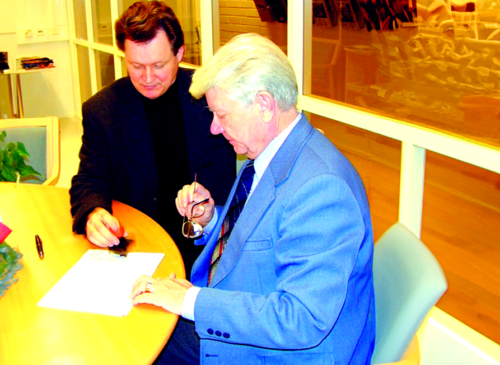
Soviet Latvian State Television executives sign a historic agreement to carry Christian programs. Anatoly Gordienko of Soviet Karelian television and Hannu Haukka signed the contract taking the Gospel to one million Russians living in Northwest Russia.
1993

IRR/TV programs on Russian National Television come under fire. Chairman Lysenko defends his decision to keep the programs on the air in the face of stiff opposition.
1994
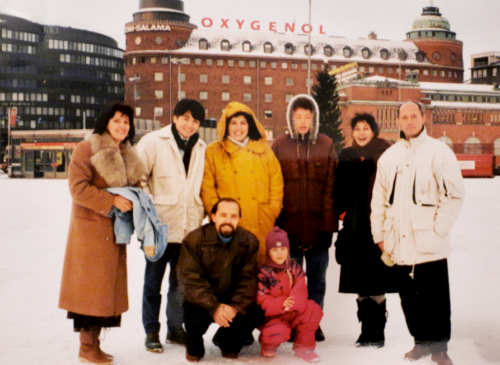
An Albanian TV crew travels to Finland to dub the children’s Kingdom Adventure series into Albanian, which teaches Christian values in an allegorical setting.
IRR/TV goes on air with Christian programming on over 50 regional TV Channels in Russia.
1995
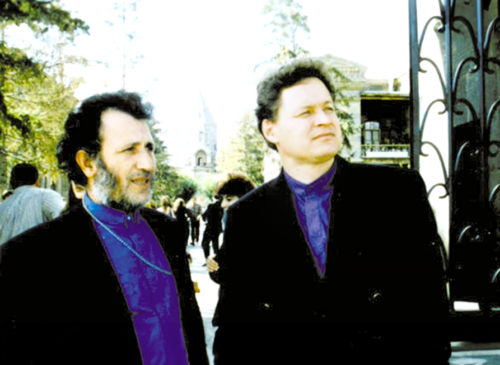
Political turmoil in Russia begins to surface. TV channels are restructured with leadership changes. The Armenian archbishop requests programs for Armenian State TV.
A vision for media training of nationals begins to emerge.
1996

Media training begins for church workers in St Petersburg. The vision to train and prepare workers to use the media for evangelistic outreach is cast.
Teachers came from Moscow and Finland, and some students from Mongolia.
1997
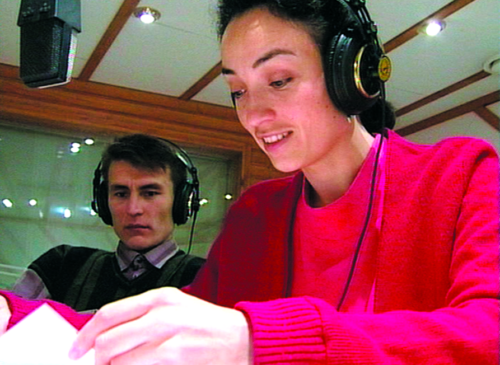
We discovered that dozens of major ethnic people groups in the former Soviet Union had not heard the Gospel message in their mother tongue.
The first ever Christian TV programs in the Tatar language were produced at the IRR/TV studios in Finland and started program production for over 20 minority people groups, largely unknown to the outside world in their mother tongue.
1998
IRR/TV founded the Association of Christian Broadcasters of Russia. Their first national media missions conference is held in Moscow. We launched program production for 20 forgotten people groups in the former Soviet Union. Campus Crusade Canada and the Lethbridge Group fund the initial outreach.
The TV programs for the forgotten people groups in their mother tongue, included the Maris, Mordvins, Komis, Udmurts, Tatars, Bashkirs, Chuvash, Yakuts, Buryats, Tuvins, Kazakhs, Kyrgyz, Azeris, Avars, Kumyks, Dargs, Laks, Lezgins as well as millions of hearing impaired people.

The Finno-Ugric peoples of the Russian Mari Republic received the Superbook Bible in their mother tongue.

Students travelled to Moscow from Siberia’s Khanty-Mantsiysk area to learn about television ministry at special courses in broadcasting offered by IRR-TV.

IRR/TV’s nationals in media. The training events were attended by students from the remote Siberian region of Yakutia, as well as Khatny-Mansiysk in the Ural Mountains.
1999
Media training conferences
IRR/TV established the first Schools of Broadcast in Russia with Canadian-based Crossroads Family of Ministries. Students from all over Russia and the CIS states were trained for TV and radio ministry.
Regional media training conferences were held in Russia and Central Asia after the Association of Christian Broadcasters was established.
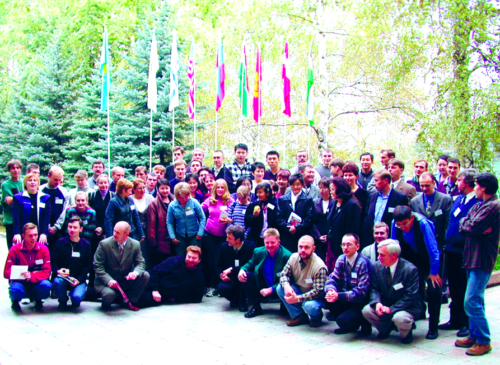
.
A group of 80 believers from the Soviet Central Asian countries of Kazakhstan, Kyrgyzstan, and Tadzhikistan gathered in Almaty, Kazakhstan for the first Christian media conference of the region. A 10-member team from IRR/TV trained and equipped the students in media during the 3-day event

God “speaks the languages of 100 minority nations” in Russia and the CIS. The Tuvins, related to the Mongolians, close to the Chinese border, produced 52 episodes of the best Bible stories for children.
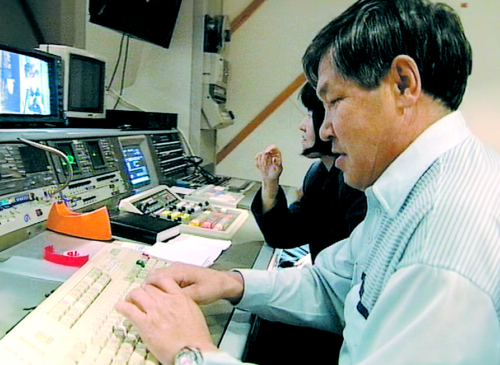
The Burjats are from the shores of Lake Baikal in remote eastern Siberia. Program production begins.